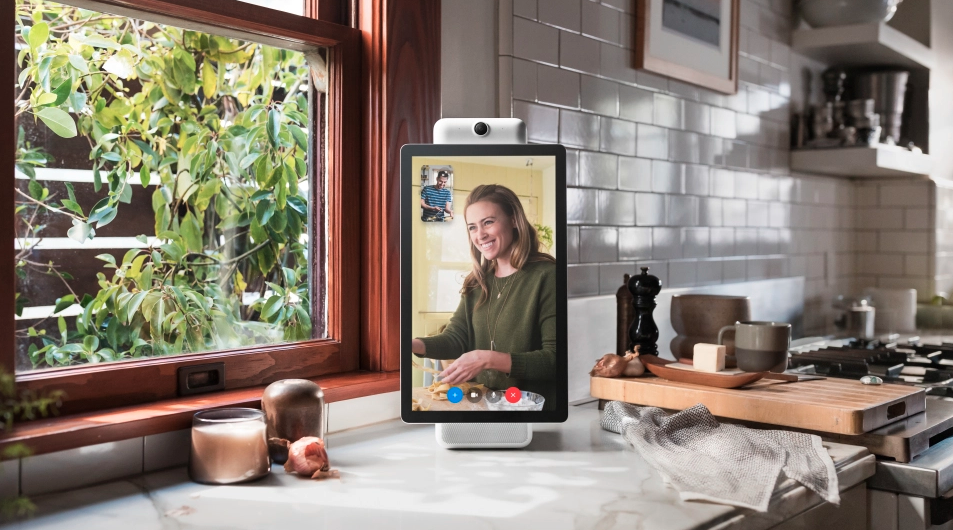‘Hey Facebook’ is the latest phrase you need to control your smart home
Most smart home builders will already be familiar with the many so-called wake words needed to control voice assistants like Alexa, Siri and Google Assistant. Now, there's another one.
'Hey Facebook' was announced by the social network this week and will be used to control both Facebook's Portal smart video chat displays, as well as the virtual reality headsets of its Oculus division.
Read More:
- Facebook Portal smart display review
- VR headset makers can't keep up with demand, so prices are up 50%
- Sony keeps the faith with VR, announces new headset for PS5
Voice controls were already available on both of these devices, but now Facebook is taking a more unified approach with the 'Hey Facebook' wake word across both hardware categories.
Previously, Oculus VR users had to select Voice Commands from the home menu or double-press the controller button to enable voice control, but now they can just say 'Hey Facebook' to get the headset's attention.
This system is being rolled out to the Oculus Quest 2 now, and Facebook says it will come to all Quest devices in the future. The company explained: "Our goal is to make voice commands a truly hands-free experience – and make it easier to take screenshots, cast, group up with your friends, and more."
As such, phrases you can now use for interacting with your Quest 2 headset include: "Hey Facebook, take a screenshot," and: "Hey Facebook, show me who's online," and: "Hey Facebook, open Supernatural". You can find a full list of the available voice commands for the Quest 2 headset here, under the final drop-down section.
Over on the Portal, Facebook's video chatting smart display, the new 'Hey Facebook' function simply replaces what was possible by saying "Hey Portal" before.
Like other voice assistants, such as Siri and Alexa, Facebook's works by using a microphone that is always listening for the wake word. Once heard, the microphone begins recording and transcribing; this is then sent to Facebook's server for analysis, before the Quest 2 or Portal then acts on your command.
Facebook says that voice control is switched off by default. The company adds: "If Portal detects a wake word, a visual indicator appears on the bottom of the screen, and Portal will start to record and transcribe your voice interaction. This recording and transcription is sent to Facebook servers in real-time to respond to your request."
Although Facebook doesn't yet have a fully-fledged voice assistant of its own – and its Portal devices currently use Alexa – this move suggests the company is positioning itself to join Amazon, Google and Apple with just such a service. We will be interested to see what comes next from its Oculus and Portal divisions, and whether Facebook can overcome long standing privacy concerns to deliver a more intelligent – but not invasive – voice assistant.
Oculus Quest 2 — Advanced All-In-One Virtual Reality Headset — 64 GB
